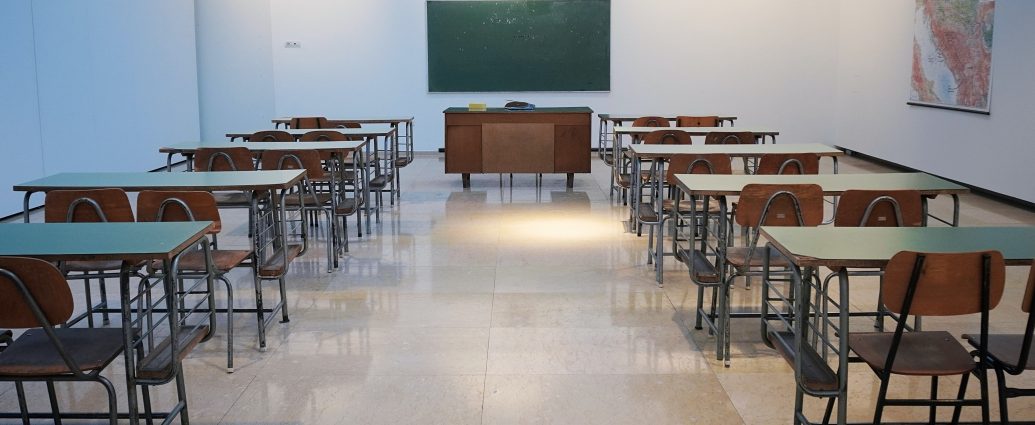Coronavirus made it impossible to safely hold exams as normal across the world, and so countries took varied approaches to assessing school-leavers, ranging from going ahead with traditional exams, with added precautions, to complete cancellation. Whatever your political affiliation, the UK government’s handling of exam grading during the current Covid-19 pandemic can hardly be called anything other than a fiasco. Are there lessons that the UK government could have learned from other countries’ handling of the issue?
In the UK, A-levels and BTECs were cancelled back in March, with the Prime Minister assuring pupils that they would “get the qualifications they need and deserve for their careers”. It later transpired that these grades would be calculated via an algorithm designed to prevent grade inflation, taking into account teachers’ predictions, prior attainment and historic results from the school or college. There was outcry from students, teachers and parents alike, as almost 40 per cent of results were downgraded from teachers’ predictions. Thousands of students missed out on their top-choice university places. Despite repeated insistence that the process was robust, eventually the inevitable U-turn occurred and an appeals process was announced – but swiftly withdrawn. Finally, students were told they would receive the highest of their Centre Assessed Grade or that awarded under the algorithm. Now students who had previously missed their university offers are looking to claim back their first-choice place, but these courses may already be full, leading to unplanned gap years, potential overcrowding on courses, and further disappointment.
According to global analysis by UNESCO, 58 out of 84 surveyed countries had postponed or rescheduled exams, 23 introduced alternative methods such as online or home-based testing, 22 maintained exams while in 11 countries, they were cancelled altogether.
“Adapted exams were also a popular response.”
Some countries took a similar approach to the UK, cancelling exams and awarding pupils with estimated grades. In France, the Baccalaureate was cancelled for the first time since 1808, with results calculated from marks from the first two terms, adjusted by local juries on the basis of past local and national results. Norway cancelled exams and awarded pupils their grades from other forms of continuous assessment, which usually constitutes 80 per cent of their results. Similarly, students in the Netherlands were given results taken from school exams taken earlier, usually only half of their final grade.
On the whole, these systems were considered to be more successful than the initial approach taken in the UK. The French system lead to similar worries around grade inflation as in the UK, with a record pass rate of 91.5 per cent compared to 77.7 per cent last year, but in countries where results were based entirely on previous assessment, the system was generally met with approval by students. However, in the UK, this may not have been a viable solution, as since the abolition of both modular assessment and later AS levels, no other forms of assessment are taken in the final two years of school. Perhaps this year’s highlighting of the negative aspects to exam reform will renew discussion around the benefits of modular exams or even more mixed assessment methods.
Adapted exams were also a popular response. In the USA, AP tests were completely rewritten to be taken at home and submitted online, with free-response tasks being submitted as either a picture of handwritten text or using a word processor, although technical issues have led to fears they may need to be retaken. In Spain, some schools continued to use exams as part of the continuous assessment for the Bachillerato, equivalent to A-levels. However, this raised problems, with worries around security and identity verification, alongside issues caused by 10 per cent of Spanish families not having internet at home, and exams being scheduled outside of normal hours to take advantage of less busy periods on the software. Italian pupils were faced with hour-long oral exams for each subject, while their written exams were cancelled.
Other systems opted to continue with exams as normal, albeit with various precautionary measures. In Germany, exams were held in smaller rooms with pupils 1.5m apart, with Hungary adopting similar measures. The Spanish university entrance exam, the Selectividad, was delayed and adapted to give pupils more choice of questions. Social distancing measures and hygiene precautions were also in place. Other countries also delayed their exams, with Poland postponing them for a month and adjusting the university admissions schedule accordingly. The Hong Kong Diploma of Secondary Education was also delayed for a month.
“Replacing A-levels with a more holistic form of continuous assessment would not only make the system fairer to students, but also more resilient to unexpected challenges like Covid-19.”
Given the system for assessment in the UK, postponement of exams seems like it could have been the simplest and least disagreeable solution to the grading problem. Students would have been able to take exams and receive their grades as normal. However, the university admissions schedule would have made this difficult to enact, and delaying the start of the university year would have been challenging with such short notice. This scenario may add weight to calls for university applications and admissions to occur after A-level results day.
Of course, nobody could have predicted the drastic changes to our way of living that Covid-19 has caused. But it seems that many of the difficulties faced in determining a fair and accurate method of approximating pupils’ grades could have been avoided if we had only had a more modern and progressive approach to assessment. Unlikely as it seems, hopefully this year’s fiasco will be the death knell for traditional ‘all-or-nothing’ exams. Replacing A-levels with a more holistic form of continuous assessment would not only make the system fairer to students, but also more resilient to unexpected challenges like Covid-19.
Sophie Kitching
Image courtesy of Ivan Aleksic on Unsplash. License found here.

